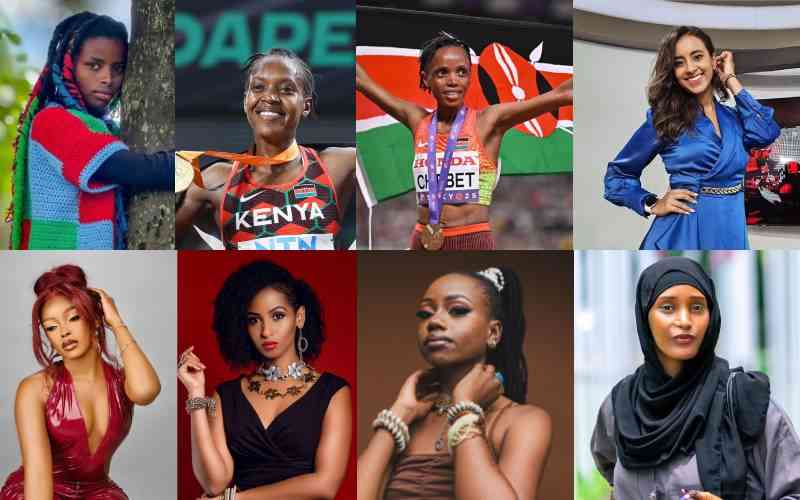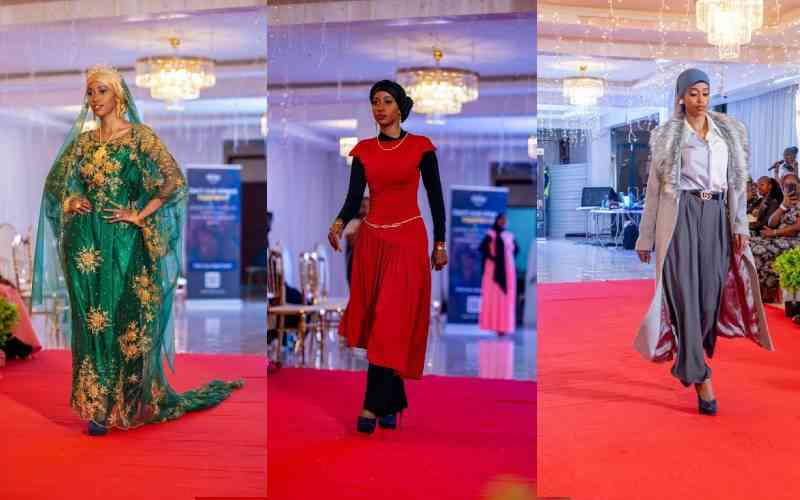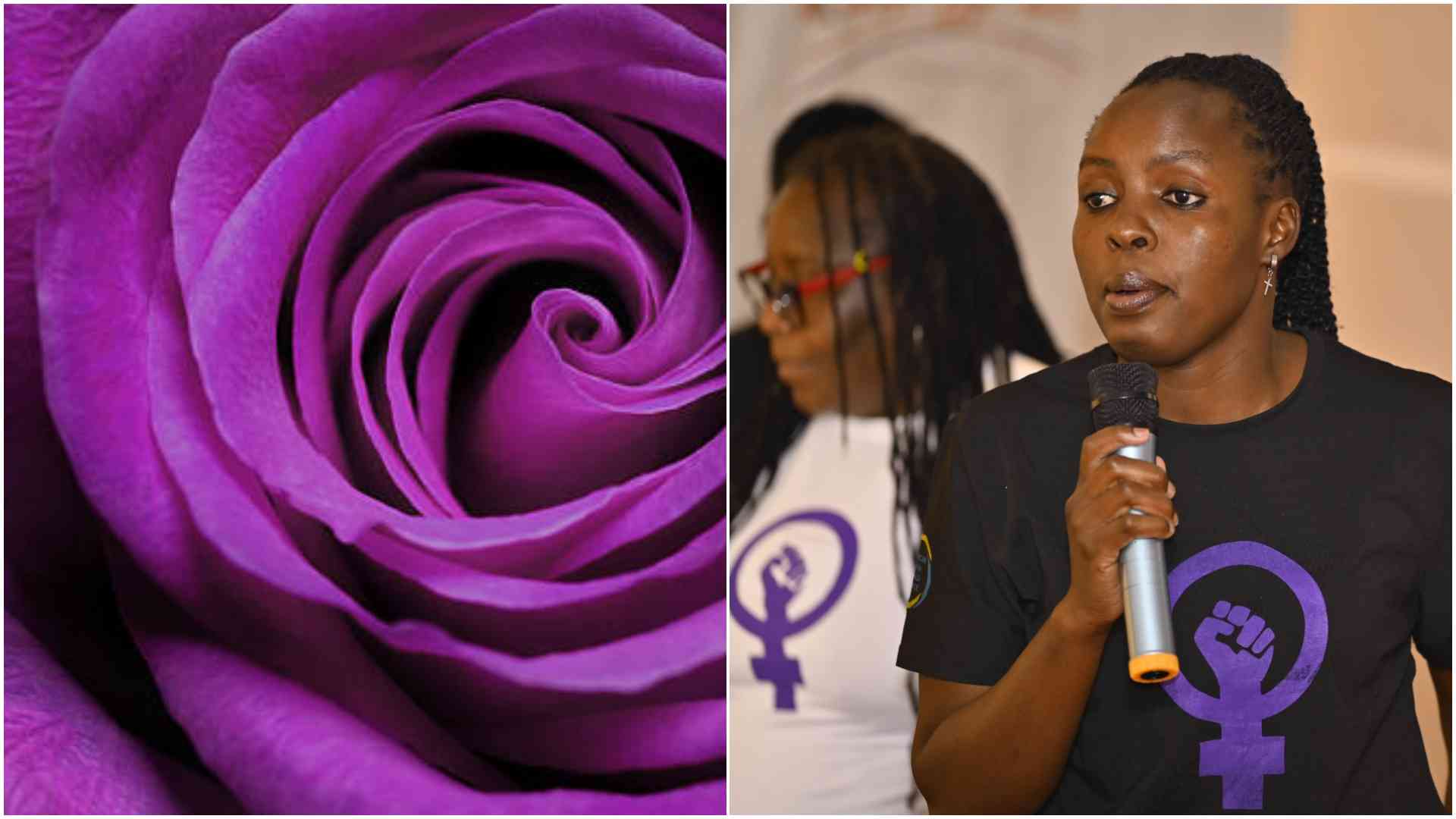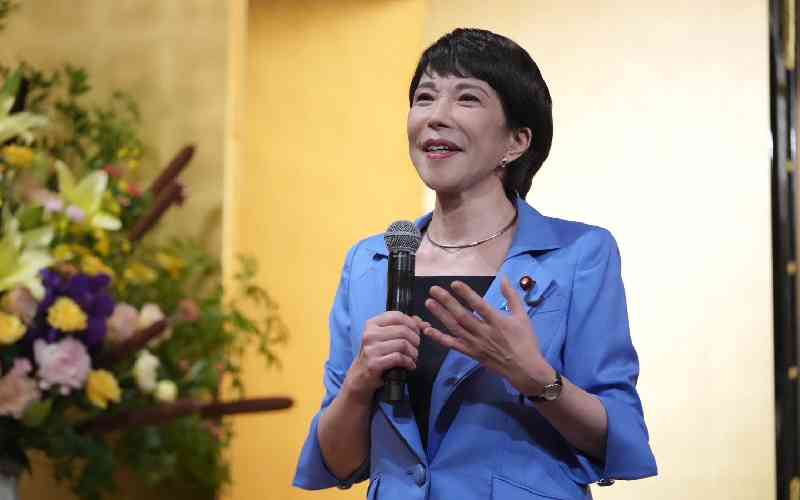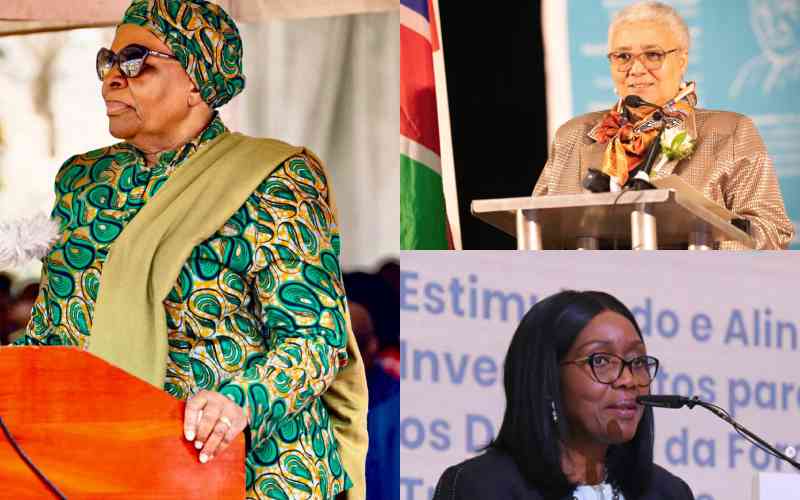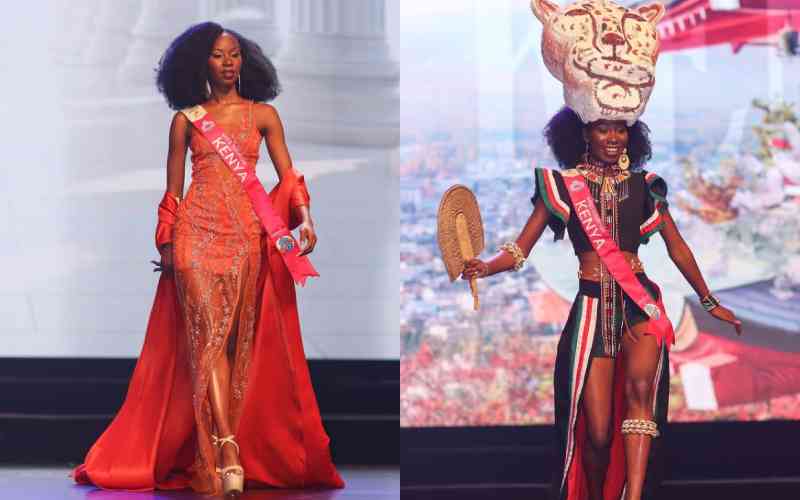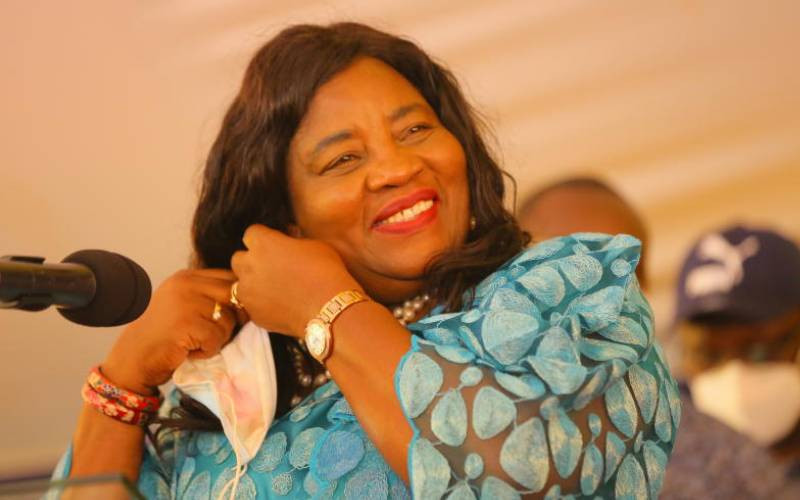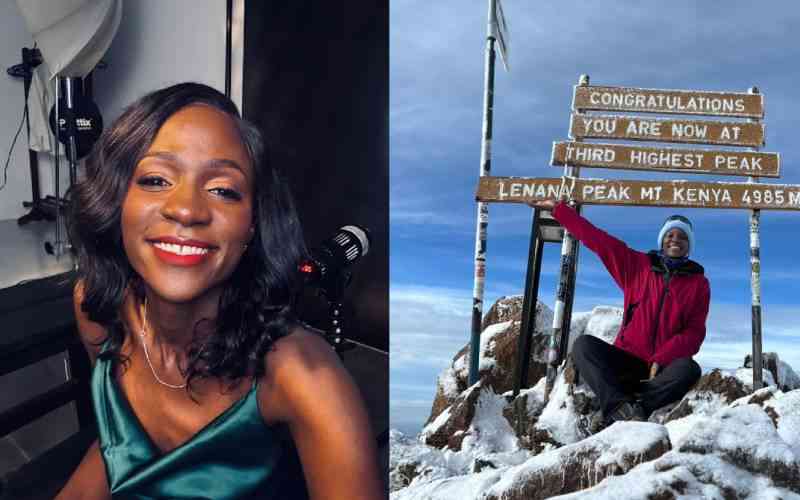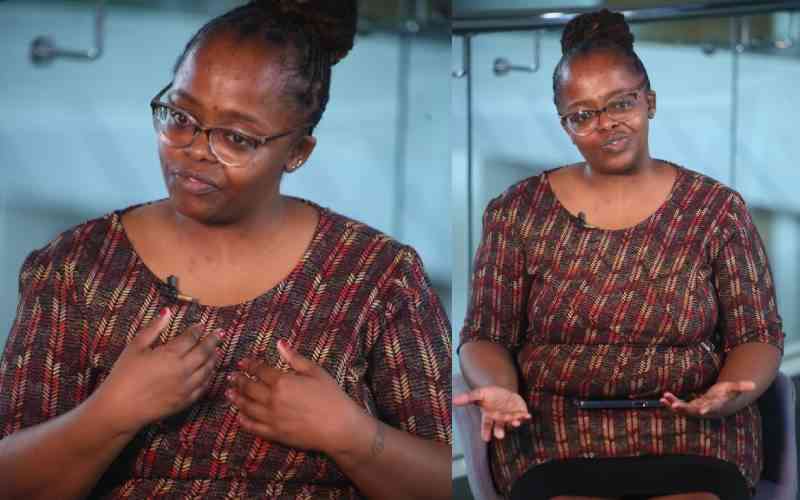
At 30 years old, PhD candidate Gladys Mosomtai recently received a fellowship award in the Regional programme L’Oréal-UNESCO for Women in Science Africa. The prestigious programme has over the last 20 years recognised female scientists and funded research projects that make an impact to the world. Gladys opens up about her journey from a humble background in Baringo County to a scientist changing the world and defying predefined gender expectations
Tell us a little about yourself
My name is Gladys Mosomtai, a 30 year old, born and raised in Mogotio, Baringo County. I did my primary school education at St. Mary’s Primary School, Mogotio and later joined AIC Girls Secondary School Kessup, Iten. I graduated from Kenyatta University in 2012 with a bachelor degree in Environmental Planning and Management and from Dedan Kimathi University of Technology in 2017 with a Master degree in Geospatial Information Science and Remote Sensing.
Currently, I am a PhD student based at International Centre of Insect Physiology and Ecology (ICIPE), Kenya and University of KwaZulu-Natal, South Africa where I am conducting my research on impact of landscape pattern and agronomic practices and microclimate on coffee pests and disease in smallholder farmer in Kenya.
What does being a researcher at International Centre of Insect Physiology and Ecology (ICIPE) entail?
ICIPE is an international research organization with a global recognition in insect science. It is a multicultural environment with a vibrant community of scientists, scholars and staffs, whose aim is to harness insect research for sustainable development in food secure and healthy Africa.
To succeed in this environment, one needs not only a brilliant mind but also one embodied with passion, consistency, patience, and perseverance for long working hours. It also needs good interpersonal skills for networking and collaboration.
What is a typical day for you in the workplace?
You would think I spend in a lab but that’s not the case. I spend a lot of time on my computer.
My work involves either generating or analysing data from satellite images and/or in situ data both at local, regional and global scale using various GIS and remote sensing software and a lot of programming specifically using R programming language. I run models to simulate ecological processes of interest to my research work and these will entail a broad knowledge of ecology, applied statistics and data mining techniques.

Why research? What inspired you to get into that field?
My passion for research began when I was doing my undergraduate project. My then supervisor Prof. Simon Onywere, exposed me to all facets of a research work and even though my parents funded my work at the time, I felt fulfilled after I submitted my thesis. I was inspired by the late Prof. Wangari Maathai to pursue a career in environmental science.
Did your childhood and education prepare you for science?
Yes it did. I grew up in a family setup where girls were given equal opportunities as boys. I did chores that belong to both genders therefore, I grew up with a mentality that my gender never limited me from pursuing anything. In fact, I am always drawn to challenging the status quo in everything I engage in.
My education too prepared me for a science career but I strongly believe that I could have been more prepared had the teachers made sciences and mathematics more relatable at school. It remained abstract to me until I started doing my research.
Girls have generally shied away from enrolling in STEM courses. Is this a social or institutional problem?
A social problem that stems from our culture. For instance, when a baby is born, they already have predefined colours, pink for girls and blue for boys. This setup has limited girls from knowing otherwise. There is no equal playing ground for children to explore equally their creativity. From an early age, the social structure in our society disadvantages girls by having predefined gender roles that are ‘anti-STEM’ while boys from onset are expose to pro-STEM activities.
What in your opinion can be done to encourage girls to join STEM disciplines?
First as women, specifically mothers, we need to lift off the social construct that predisposes girls to anti-STEM.
From a young age, girls should be allowed to explore their creativity by engaging even in games that are dominantly male oriented. Personally, I grew up playing all kind of games with my brothers and cousins; I climbed trees, jumped from high cliffs and still did house chores. When I look back now, this borderless mind set that I grew up with made it easy for me to love science.
What are the opportunities available for women in the field of research?
There are so many opportunities in research. One of the biggest challenge we face in our education system is the lack of exposure to the diverse career paths available apart from the mainstream options that every child grows up knowing to either be a teacher, doctor, pilot and engineer.
There other options such as entomologist, plant pathologist, molecular biologist, virologist, environmentalist, physicist, etc. that are hardly known. The world is facing complex challenges such as climate change, which affects biogeochemical processes of the earth from micro to macro levels, and we need research from all facets of life to tackle these issues.

What would you say is the importance of having women in the STEM disciplines?
Given that women are half the population of the world, it is like a captain going to war without his best soldier. Recent findings in biomedical research have revealed that prescribed drug doses have been disproportionate for women for a long time since they were based on an average male anatomy. If women were part of this study such unfortunate errors wouldn’t have occurred. Women are needed in STEM in order to bring a women perspective in that innovation.
In a field dominated by men, have you faced any challenges as a woman and how did you deal with them.
The lack of female role models. I decided to step up and become the role model myself.
If you had to start from scratch, what would you do differently?
I wouldn’t change my childhood and teenage years but my campus years. I should have done more than just to attend my lectures. I should have engaged more in extra curricula activities to build on my talents and skills.
How do you motivate yourself and stay motivated
I love what I do. I am so passionate about my research that it keeps me late at night. Money has never been a motivator for me but the pursuit of knowledge, and to have a voice. Growing up being a role model to my siblings and cousins, that sense of responsibility too has kept me on the track.
Your dissertation involved using Geographical Information Systems to find out why a major river in your hometown declined. What other environmental or social impact discovery have you made through research that has blown your mind?
My current research work; decisions that farmers make on their farms everyday modify their landscape at large and this decisions can predispose them unknowingly to pests infestation and disease incidences in their farms. Their landscape can modify the microclimate in their plots either mitigating them from climate change or worsening their impacts. It is very crucial that farmers are educated to make informed decisions on their farms
Do you have a mentor to guide you through this journey?
I have been lucky to have had mentors in my journey. My undergraduate supervisor Prof. Simon Onywere continued to mentor me even after I completed my undergrad. When I joined icipe as an intern Dr. Tobias Landmann who was my supervisor also mentored me until I joined my PhD program. At family level, my aunt Dr. Jayne Binott has remained to be my role model
In summary what are the five tips you would give women who are interested in joining the field of science?
Passion – love what you do, just like any other career, there ups and down but passion will make you stand out from the crowd because you will be willing to go an extra mile always Consistency – you can be passionate but lack the stamina to go the long haul. Have a curious mind that always thinks outside the box. That’s how new discoveries are made in sciences Be strong willed and have a convicted mind because the society will be on your case telling you what you should do. You might have to make sacrifices that your family might not agree with like delaying family, so you must be able to withstand the pressure They have equal opportunities of exceling in STEM like men
 The Standard Group Plc is a multi-media organization with investments in media
platforms spanning newspaper print
operations, television, radio broadcasting, digital and online services. The
Standard Group is recognized as a
leading multi-media house in Kenya with a key influence in matters of national
and international interest.
The Standard Group Plc is a multi-media organization with investments in media
platforms spanning newspaper print
operations, television, radio broadcasting, digital and online services. The
Standard Group is recognized as a
leading multi-media house in Kenya with a key influence in matters of national
and international interest.

